This article has been republished with permission. Read the original on the GIJN website here.
By Mark Lee Hunter & Luk N. Van Wassenhove
May 10, 2019
No discussion is more tiresome for journalists than the one about how no one can be truly objective. The good news is that if current trends continue, we won’t have to hear it anymore. Objectivity is morphing into a radically new form.
Our received concept of objectivity requires an ethical stance of neutrality and “fairness,” an arm’s-length, non-judgmental distance toward the sources, targets and outcomes of our work. That wasn’t how it started. As Dan Schiller showed, “objectivity” began as a justification for publishing sensational crime news in the 1840s, then supported a commercial strategy, because a partisan journal necessarily has a narrower audience than a neutral one. Even then, objectivity became a standard in American journalism only when biased and corrupt reporting became a national scandal in the 1920s. The term has lately disappeared from the Code of Ethics of the Society of Professional Journalists, though the ideal of fairness remains.
In countries where investigative journalism, or even non-partisan journalism, has only recently emerged — say, the former Soviet states or Kenya— objectivity is also a survival mechanism. The best defense against the push-back of power is to stay within the facts and avoid the appearance of favoring one side over another.
That concept has been deeply subverted by both the alt-right media networks who propelled Donald Trump into the White House, captive media like Russia Today, and the stakeholder-driven media typified by leading NGOs. Though on different sides of the Left-Right spectrum, these new competitors share profound common traits. All flourished in the widening space left by the shrinkage of mainstream news media. None is mainly concerned with being “fair and balanced” (the bizarre slogan of Fox News until 2017), let alone neutral. What matters more to them is winning the fights they consider important.
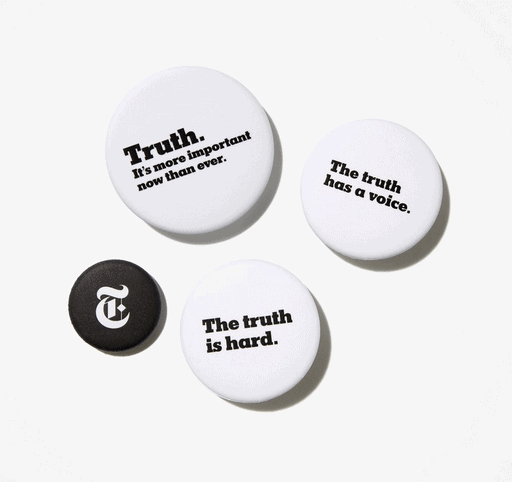
Buttons sold by The New York Times in their online store.
A parallel shift is now visible at The New York Times and The Washington Post, which have evolved into shields and lighthouses for the American “resistance.”
Simultaneously, the Times markets its work through the slogan, “Truth. It’s more important now than ever.” It is indeed, but prior to Trump, the value proposition was that journalists first obtain access to various sources who tell their own truths, then juxtapose these versions of reality. In theory, that enables users to arrive at the truth on their own.
We happen to think that the Times and Post are doing what is necessary and right, and we are glad they are being rewarded for that shift by increased readership and revenues. But we never imagined that within our lifetimes, which include Watergate, the industry leaders would become opposition journals. Even the so-called “adversarial journalism” of the 1970s never became an official brand.
This trend is international and generational, if we can believe recent research. The benchmark “Digital News Report” (Reuters Institute 2017) found that “strong viewpoints” were the most-cited attributes among readers of the the daily Italian newspaper Il Fatto Quotidiano.
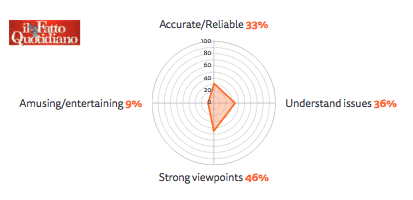
The Reuters Institute also reported in 2018 that under-35s are the main users of partisan news media like Breitbart in Germany:
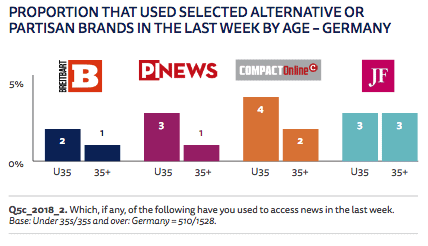
Certainly, most people in a wide range of countries, especially educated people in the US, still agree that it is “never acceptable” for a news media to favor one party over another, according to the Pew Center’s research. (Whether survey respondents really believe it can be questioned.) But it is not necessary for news media to adopt a political stance in order to protect and promote their users’ interests. The High Country News, which reported significant growth in subscriptions and revenue last year, advances a pro-environment agenda for the American West, not an anti-Trump agenda. Put another way, it’s not ashamed of fighting for what its readers think is important.
One key feature of objectivity remains: The insistence that facts must be verified. Once an ethical stance, objectivity has become a technical process focused on accuracy. This reflects our fast-increasing ability to find and verify information. You can see the effects clearly in the Arab world, where Arab Reporters for Investigative Journalism drove a cultural shift in the industry, from opinion to fact-checked inquiry. Such skills confer competitive advantage in the massive marketplace for actionable information, and also in terms of social influence. Our research at INSEAD showed that especially in crises, movements whose media offer solid facts can be far more potent than adversaries pushing spin.
Unfortunately, objectivity toward the facts — accepting facts that even our friends don’t like, exposing facts that were supposed to remain obscure — no longer makes us look neutral. Look at Hungary, where George Soros’s support for independent media has been weaponized by Viktor Orban. Telling truth to power makes us public enemies, says Trump, and in Saudi Arabia, it resembles a capital crime.
Thus our growing skills as investigators erode the safety of working at arm’s-length from the results of our work. Whether or not we take sides, we are increasingly forced to find allies who take our side — activists, entrepreneurs and attentive citizens. They need us to guide and inform their work, and we need their engagement as publics and amplifiers.
Whatever their objective truth, the facts do not speak for themselves. Someone must give them meaning and impact, and that is what our publics need and expect from us. That is also what our adversaries are doing, cynically and successfully, by telling the sole facts that support their ambitions. We do not have to become them to acknowledge that we will never be “objective” again, except in the crucial sense of seeking tested truths. We must make clear what we stand for, and how.
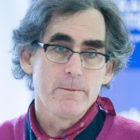
Mark Lee Hunter is the academic director of the Future Media Management Program at Stockholm School of Economics Riga, and the author, with Luk N. Van Wassenhove and Maria Besiou, of “Power is Everywhere: How Stakeholder-driven Media Build the Future of Watchdog News” (Stakeholder Media Project 2017). His awards include IREs for international reporting and research on journalism. He lives in Paris.
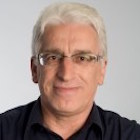
Luk N. Van Wassenhove is a professor at INSEAD, co-founder of the Stakeholder Media Project and director of the INSEAD Humanitarian Research Group. His research deals with innovative business models for societally-relevant problems like humanitarian operations and the circular economy.